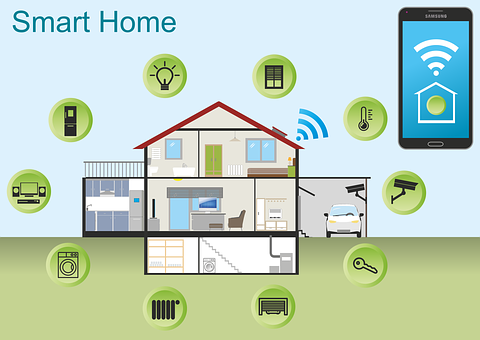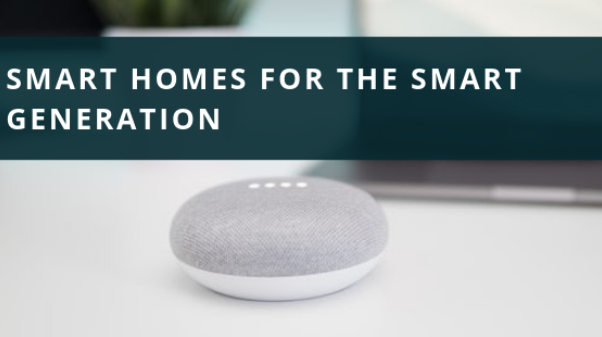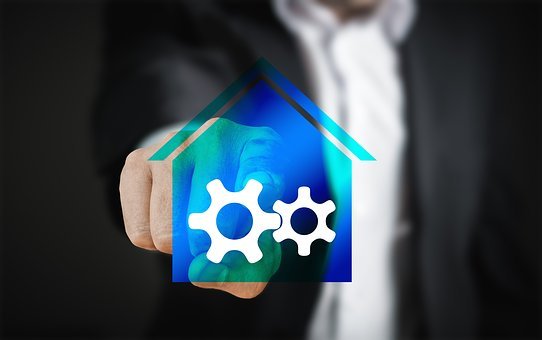Millennials detest having to choose between sustainability and affordability. Are you building homes resonating with next-gen needs?
Demand for smart homes is sweeping the ground underneath traditional homeowners.
As more contractors look to seize prime accessible areas for building projects, they are looking at a reformed buyer, one who values smart convenience borne by sustainable living.
44.9 million American millennials are a rising group of first-time home buyers.
Mindful of the environment, conscious of rising costs, and cloud-synced most of their waking hours—millennials are changing the way business is done. A growing appeal for smart homes, as depicted by the 2018 smart home marketplace survey, dawns on construction businesses yet to break even productivity and tech-driven sustainability. Emerging technologies not only helping meet new-age buyer demands but also improving the business side of construction are vital to tackle challenging market demands.
Reconfiguring spaces using smart tech is a double-edged sword—they boost energy efficiency but at a steep cost. Younger millennials aged 24 to 33 are typically held down by mortgages whereby their purchasing power pales in comparison to their older counterparts. (Note: you can visit Credible.com for a look at a mortgage loan payment calculator.) Marginally beating baby boomers in home buying last year, millennials shifted to homes with a median cost of $2, 20,000 in less pricey neighborhoods.
Alongside influencing residential real estate, millennials are leading businesses to rethink technology at the workplace. A whopping 75% of the workforce in 2030 will comprise millennials, making a strong case for a tech-enabled collaborative work environment. Dell’s recent survey showed 82% of millennials preferring an office with smart technology—a decisive factor in talent acquisition and retention efforts undertaken by top employers.
It’s worth taking a closer look at what buys the millennial swing vote.
Purchase Drivers
Immediacy
An always on-the-go generation demands a home that understands their everyday routine. Google’s Home Assistant device and Amazon’s Alexa are configurable to most tasks occurring in the living room and kitchen, with easily resettable features if security and privacy settings should change under whatever circumstances.
Flexibility
The urban-millennial stereotype argues flexibility as a stop-gap measure for the time-strapped, job-hopping youth. And it couldn’t be further than the truth when today’s workplaces allow flexi-time and telecommuting options for those looking to do more with their time in an increasingly complex world.
Mobility
Picture not making a get together at your place on time. While you should ideally be the one welcoming your guests, your smart home assistant would exude just the warmth they need to get comfortable, more importantly settle down once it unlocks the main door. These devices are uber efficient in nearly every routine activity—from toning the lights to playing soothing music fit to the mood.
Affordability
Millennials filter home search by affordability. A millennial household earns a median income of $69,000 according to Pew Research Centre. They consider buying new homes when they’re upgraded, repaired, and fall close to their place of work. They don’t want to be on the hook if a place needs renovations and expensive repairs due to poor maintenance. With most of their time spent outdoors, millennials pick homes requiring minimal time, care, and money.
Energy Efficiency
Climate concerns deeply affect buying decisions. An environment-aware generation prioritizes lesser carbon footprints over trendy fixtures. You’re looking at in-built LED lighting technology operable with a remote control; solar panels powering heavy electrical devices; and even Energy Star appliances helping them save on utility bills. Energy efficiency is a generational trait that relieves them from the recurring costs of maintaining capitalistic leisure.
Top Smart Home Features Intriguing Millennials
Connected Lighting
Connected lighting systems speak to you.
They send and receive commands through sensors connected to your home wireless network, adjusting temperature and tracking humidity—meant to provide greater control over spaces. Data receptors combine inputs from human operators and existing building management systems for better real-time efficiency, comfort, and safety.
Smart Sensors
Smart sensors keep your food warm, help normalize sleep, and can activate on-demand entertainment. Smart home product manufacturers use cutting-edge technology to communicate with your needs.
Multiple product options exist for various purposes.
Smart HVAC System
About the same investment in conventional HVAC repairs, investing in a smart heating and cooling device that operates at your voice command is winning consumer mindshare. Sensors fit onto these devices enable temperature control by a phone, tablet, and PC.
Cloud-Enabled Home Apps
Home security and privacy are dual goals possible with a single device. Millennials worry about privacy with IoT-driven home automation.
Smart security devices come loaded with vital security features including image sensing, sound detection, and video recording capabilities. They can double up as privacy assuring gadgets with you being able to set biometric passwords for different activities. With millennials repurposing their homes into offices, greater privacy guarding their business is no longer seen as a privilege but a necessity.
Sustainable Furnishings
Eco-friendly smart interior design synchronizes good aesthetic with usability. Technology powering furniture can be personalized to user actions whether they are at home or in office. A smart bed mattress adjusts pressure in real time to improve your sleeping patterns. A foldable dinner table is reusable as a conference table which helps save space and cost.
 Although bringing convenience, such technology can take days and even weeks for homeowners to operate. Nevertheless it’s essential to seamlessly connect and integrate technology with efficient design.
Although bringing convenience, such technology can take days and even weeks for homeowners to operate. Nevertheless it’s essential to seamlessly connect and integrate technology with efficient design.
Smart home buying heralds many milestones in human invention in technology and sustainability sectors. If your construction business is adapting to increasing demand of these spaces, you’re likely to turnaround higher profit margins than your competitors.
What is your take on millennial smart home buying?


